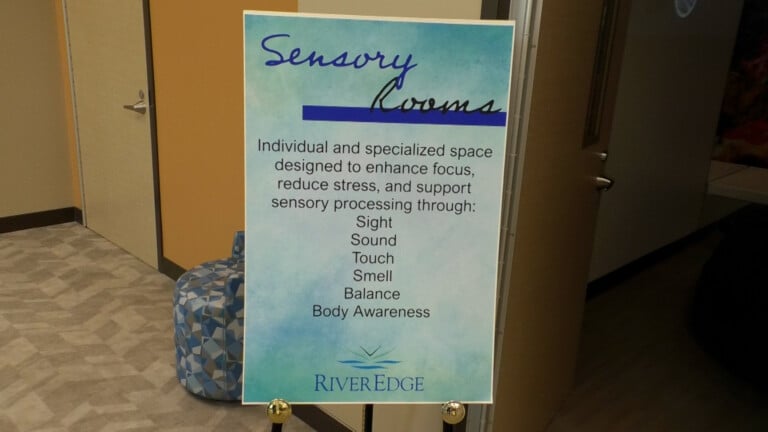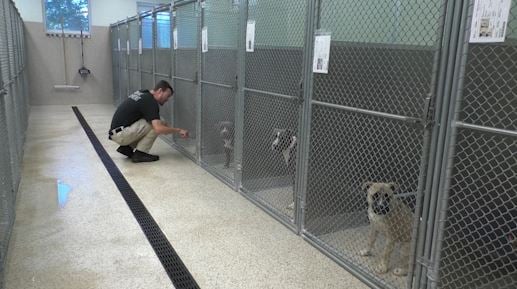River Edge, Mercer partner to increase services for Georgians with intellectual disability disorders
MACON, Georgia (41NBC/WMGT) – Leaders from the Mercer University School of Medicine and River Edge Behavioral Health say Georgians living with intellectual and developmental disabilities (IDD) are underserved. that’s why they’re partnering with the Georgia department of Behavioral Health and Developmental Disabilities (DBHDD) to open a new, state of the art diagnostic facility.
DBHDD serves more than 120,000 patients across the state, but never before to the extent they’ll be able to soon. Kevin Tanner, Commissioner of DBHDD, says the new 34,000 square foot Macon facility will be Georgia’s first to combine inpatient and outpatient services.
“Having all that expertise come together under one roof is the game changer for the system,” Tanner said.
The Mercer University School of Medicine Center for IDD Care will take treat patients who don’t require an overnight stay. This will include dental care, audiology, physical and speech therapy and on-site pharmacy.
“We bring in specialists and subspecialists who care about this population and will provide outstanding care,” said Dr. Jean Sumner, Dean of the School of Medicine.
Sumner says each staff member will come trained to treat patients with disorders like autism, cerebral palsy and down syndrome. She says she’s proud that Mercer can uplift this population as treatment in traditional settings can make them feel like they don’t have a voice.
“Now they have our voice,” Sumner said “We’re going to stand up for them. We’re going to work to continue the high-quality care and improve their lives.”
The River Edge Crisis Services and Diagnostic center will prepare individuals to reintegrate into their communities. The facility houses 16 inpatient beds. Patients can stay at the facility for up to 90 days before either going back to their family, or another IDD care provider.
“The idea is for them to come here, for us to do a complete assessment of the individual, figure out what the treatment plan needs to be, and then be able to get that person to step down into a community placement,” Tanner said.
In a crisis, River Edge says staff members will avoid using seclusion and restraint and instead will use methods such as allowing patients to sit in sensory rooms. Tanner says it’s frustrating getting phone calls from hospitals and host homes when they’re not able to care for IDD patients. He says the Crisis Stabilization Diagnostic Center will go a long way toward bridging the gap.
“I get excited everyday about a lot of the things that happen in Georgia and a lot of things that happen with our agency that we’re able to support,” Tanner said. “I’ve not been more excited than I am about the opening of this center.”
River Edge’s Crisis Stabilization Diagnostic Center is expected to open in mid-June, while the Mercer University School of Medicine Center for IDD Care will open later in the summer.












